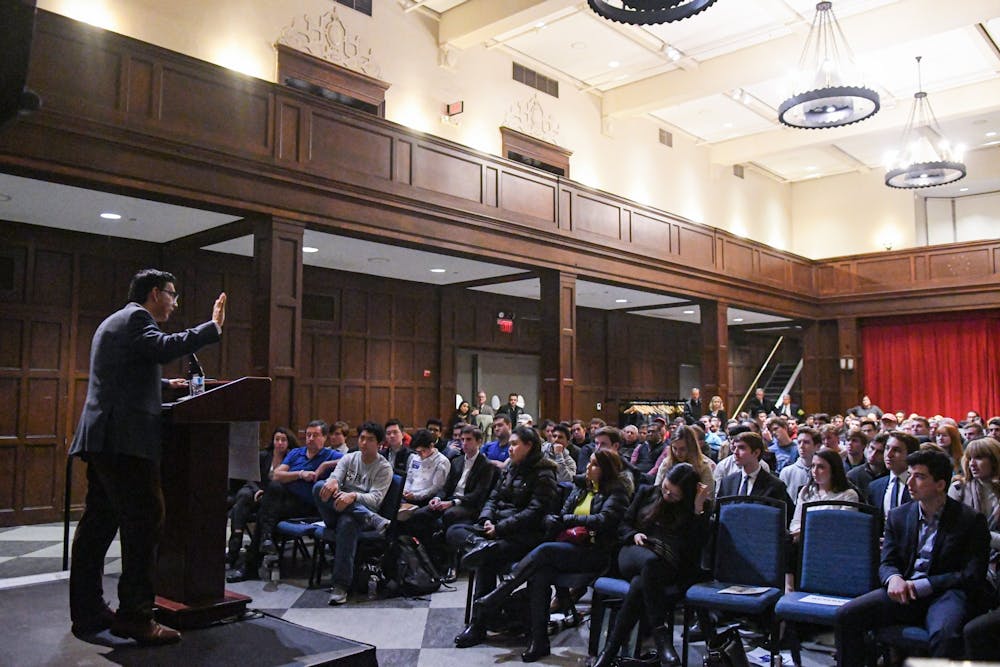
At a recent Penn College Republicans event I attended, filmmaker Dinesh D’Souza was met with a silent protest from about 20 students holding signs that read “Deport Fascism” and “No one is illegal on stolen land.” Instead of doing any damage to the event, the protest glaringly showed the protesters’ aversion to formal discussion and debate.
In recent months, we have seen multiple controversial speakers, such as D’Souza, Candace Owens, and former Immigrations and Customs Enforcement Acting Director Thomas Homan, confront student protesters during their visits to Penn's campus. While it can seem attractive to create posters and shout a monotonic message in the face of a speaker, it is the worst way to oppose them, because never in the world has disagreement helped society if its outlet was protest and not reasoning. In cases such as with the ICE protest and the D’Souza sit-in, the protesters chose to protest instead of debating the speaker’s points.
Instead of protesting, groups that disagree with a speaker's message ought to confront their ideas. I personally would like to understand how clubs such as Penn Asian American Pacific Islander Politics, which organized the silent protest, debate the points made by speakers like D’Souza, and I’m certain I’m not the only one with that viewpoint. Groups such as Penn College Republicans and Penn Asian American Pacific Islander Politics should have joint events where they invite speakers and debate controversial policies, rather than one side simply hosting provocative speakers and the other attempting to shut them down.
We are in college, a place where we are not only supposed to gain knowledge about a specific subject but also form opinions about different constituents of society. Being a free thinker is a key principle for generating informed views about politics, education, and the economy. That involves listening to controversial people who we might disagree with, but make nuanced arguments nonetheless. To some students, there might be an idea that everything a conservative speaker says is unfounded and pure rhetoric. But their opinions should be constructively debated, not shut down, because they have some logic in reaching their conclusions.
Research shows that protests work because they get people politically activated. But if we have conversations about important topics through protests, then we put the student population at risk of an aversion to free-thinking, laziness, and close-mindedness.

TEJASWI BHAVARAJU is a College freshman from India, studying Mathematical Economics and Cinema Studies. His email address is tejaswib@sas.upenn.edu.
The Daily Pennsylvanian is an independent, student-run newspaper. Please consider making a donation to support the coverage that shapes the University. Your generosity ensures a future of strong journalism at Penn.
Donate






